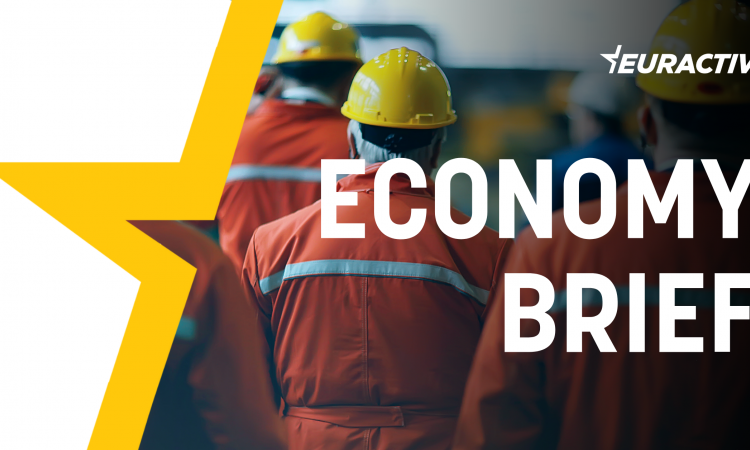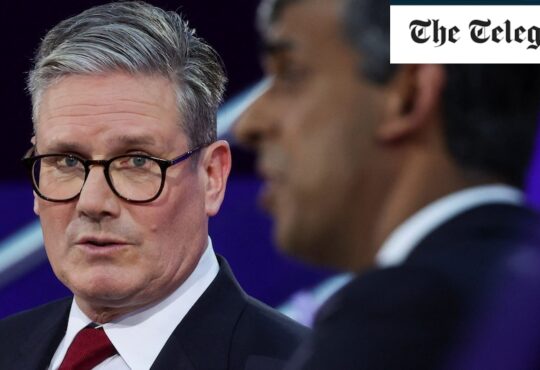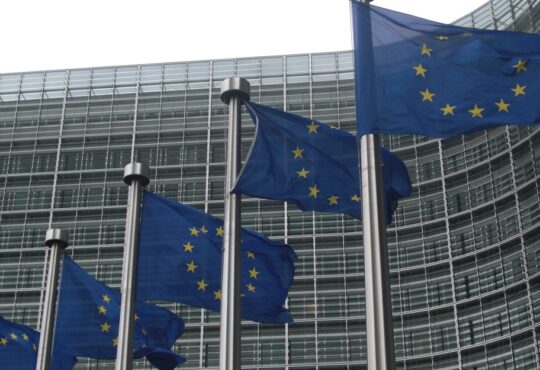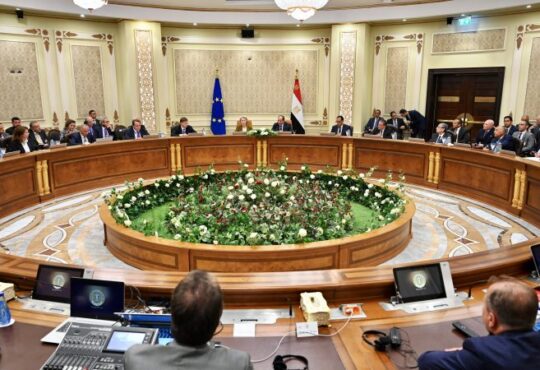
Welcome to EURACTIV’s weekly Economy Brief. You can subscribe to the newsletter here.
In an interview with EURACTIV, Jim Snabe, the chairman of German industry giant Siemens, argued that current societal challenges require a more active state involvement and a new understanding of innovation while expressing concern over deteriorating relations with China.
Speaking on the sidelines of the Brussels Economic Forum on 4 May, Snabe said it is also necessary to differentiate between bottom-up and top-down innovation.
The former describes a process through which innovation emerges more or less naturally from individual businesses competing in the free market, while the latter is a more goal-oriented process where you define a problem and then look for solutions.
“Sometimes we’re a little bit too pure in our definition of innovation,” he told EURACTIV, adding that one could not exclusively rely on the bottom-up approach. Especially with the necessity of the green transition, there was a set of obvious problems that needed solutions, he said.
Inflection points require more public investment
While sometimes it is fitting that policymakers adopt a hands-off approach and content themselves with simply defining the game’s rules, at times of infrastructure transition, this is not enough, Snabe said.
According to the Siemens chair, who also sits on the board of the recyclable battery producer Northvolt, Europe finds itself at an “inflection point” where old infrastructures had to be exchanged for new, more sustainable versions.
“No country ever benefited from waiting with infrastructure investments that create upgrade opportunities. Whoever is furthest with 5G gets the benefits of 5G before everyone else, as an example,” Snabe told EURACTIV.
“We have infrastructures that need an upgrade. And you don’t want that to be private only,” he said, mentioning the 5G mobile infrastructure, energy systems, public transportation systems, and buildings as examples.
“Suddenly, the public sector does investments as well,” Snabe said. And “when [states] do that, they accelerate the investments from businesses as well.”
Benefits and drawbacks of Europe’s political system
At this point, it is necessary to mention that, being in the business of 5G technologies, energy grids, and hydrogen, Siemens stands to gain from increased public infrastructure investments.
In general, a more active industrial policy can increase the risk of corporate capture, as well-connected businesses can leverage their connections to decision-makers to boost their profits.
Asked about this risk, Snabe argued that Europe’s political system was advanced enough to prevent such issues. “[This] ensures that you make decisions that are good from a country’s or a regional point of view,” he said.
Europe’s political system, however, also makes the transition more difficult as a multitude of administrative and democratic safeguards have made infrastructure investments extremely difficult to execute thanks to lengthy permitting procedures.
The EU Commission recently proposed the Net-Zero Industry Act that should help cut permitting times drastically. Snabe, meanwhile, looks at Europe’s reaction to the COVID pandemic for inspiration.
“We were actually able to get things done in weeks or months that normally would take years,” he said.
“Why don’t we take that culture into specific areas where we need the speed, for instance, around renewable energy systems?” Snabe proposed, suggesting to “just cut through the whole complexity and do something dramatically simpler.”
Don’t decouple
Regarding the geopolitical outlook, the Siemens chairman showed worry over the increasing tensions among the big global players, calling it “super concerning.” He argued that collaboration and idea-sharing was essential for a successful transition.
“Probably, we were too naive to put too many bets on one single big country for labour arbitrage reasons,” he said, pointing at China. But instead of cutting ties with China, Snabe would prefer to deepen the ties to other Asian countries to broaden the dependency.
“Let’s not even talk about decoupling,” he said, arguing that Siemens was so well established in China that its Chinese company could be run independently.
Unsurprisingly, therefore, Snabe is looking at the Commission’s upcoming economic security strategy critically. The economic security strategy is expected to discuss policies to reduce further the EU’s dependence on third countries, especially China, through outward investment controls.
“I think we shouldn’t go overboard with that,” he said.
The rising interest rates are taking their toll on the EU budget. Today’s chart of the week shows how the borrowing costs for EU bonds have changed over the past two years for bonds of different maturities.
Since June 2021, the EU has issued bonds of varying maturities on about 20 different days. Most were issued to finance the EU’s pandemic recovery programme Next Generation EU. The re-offer yield is basically the yield investors demand in return for their investment in EU bonds.
Whether for five-year or long-term 30-year bonds, the costs of borrowing for the EU have increased substantially, by up to three percentage points.
For the first half of this year, the EU Commission plans to issue up to €80 billion in bonds. For this amount, a jump of three percentage points means additional costs to the EU budget of €2.4 billion annually. And more bonds will be issued over the coming months and years.
The European Parliament worries that the rising borrowing costs will hurt the EU’s ability to finance its policy priorities and programmes as intended.
That is why it passed a resolution this week, calling on the Commission to address the problem this poses to the EU budget. In parallel, it passed a resolution asking the Commission to come up with an additional package of new own resources “as soon as possible” to make up for this shortfall in the budget.
The EU Commission will likely present its draft proposal for the EU budget 2024 and the mid-term review of the multi-annual financial framework before the end of June.
You can find all previous editions of the Economy Brief Chart of the week here.
No inducement ban for financial advice – for now. As Commissioner Mairead McGuinness already announced at the end of April, the inducement ban for financial advice will not be included in the Retail Investment Strategy due to be announced on 24 May. A leaked draft of the Commission proposal, seen by EURACTIV, now confirms this. Only in very limited cases will it be forbidden for advisors to get paid in sales commissions instead of by the clients they are advising. For the most part, the Commission wants to rely on better client information so that they are not sold bad financial products. However, the draft proposal also calls for revising the rules only three years after their implementation to see whether the revised rules are effective enough.
EU lawmakers divided over European approach to regulating sex work. The European Parliament is working on a report “on the regulation of prostitution in the EU”, which asks member states to decriminalise people in prostitution while criminalising clients and third parties organising sex services in a bid to reduce demand. The report is expected to be finalised in May and brought to the plenary vote in June, but it has divided EU lawmakers due to the proposed regulatory model, wording, and the overall legitimacy of sex work.
Vestager calls for caution as Germany presents electricity subsidy plan. Last Friday, German Economy Minister Habeck presented his plan for a subsidised electricity tariff for heavy industries. Those should receive 80% of their electricity needs for only 6 cents per Kilowatt hour, Habeck suggested, to prevent companies from relocating production abroad. On a visit to Berlin, this Monday, EU competition chief Margrethe Vestager cautioned against the idea. “Great care is needed if you start subsidising energy for businesses directly competing with other businesses,” she said. Read more.
European Parliament shows divisions in fiscal rules debate. On Tuesday (9 May), the European Parliament debated the Commission’s proposal for revised fiscal rules. Criticism came from all possible sides, and the lines of conflict went along ideological and national lines. Especially the liberal Renew group seems to face the impossible task of reconciling the position of its French and German members. A lot of political work to consolidate positions is yet to be done if the Parliament wants to impose itself as an influential actor in the legislative process. Read more.
EU Commission scales back single market enforcement. The single market lives due to the harmonisation of rules that should make cross-border economic activity frictionless and fair. It’s the Commission’s task to police this harmonisation so that the harmonisation actually happens on the ground instead of being an EU-Bubble fantasy. An analysis by the Financial Times now unveiled that the current Commission under Ursula von der Leyen seems much less diligent in enforcing single market rules than the Commission of previous presidents.
France’s plans to fight tax fraud ‘lacks ambition’, experts say. A series of measures were presented by the French government on Tuesday (9 May) to fight tax fraud committed by both individuals and multinationals, though the plan lacks ambition and fails to tackle the problem at its roots, experts warn. Read more.
Austrian government cracks down on energy companies to combat inflation surge. The Austrian government introduced on Wednesday a series of new measures, including the absorption of profits and tighter reporting obligations for energy companies, amid increasing inflation. Read more.
Irish finance department warns of future changes in retirement. The long-term public saving vehicle will not be sufficient to cover in full future age-related costs, an analysis entitled ‘Future-proofing the Public Finances – the Next Steps’ published by Ireland’s Finance Minister on Wednesday reads. Read more.
The longer-term fiscal challenges facing the European Union. This Bruegel policy brief makes some recommendations for European fiscal policy should be conducted in the coming years, arguing for some fiscal consolidation. It should, however, be done gradually not to slow growth too much.
Additional reporting by Silvia Ellena, Jonathan Packroff, Théo Bourgery-Gonse
[Edited by Nathalie Weatherald/Alice Taylor]







